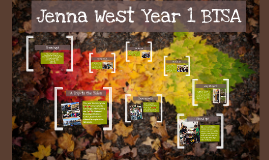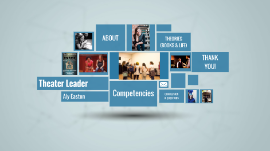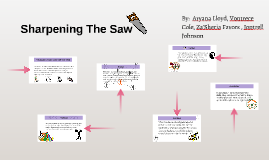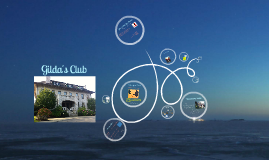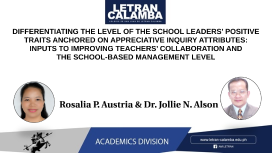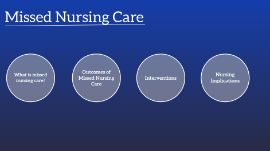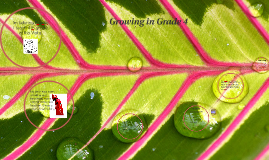Colloquium Presentation
Transcript: Theater Leader Aly Easton ABOUT My name is Aly Easton and I am a storyteller. I am passionate about bringing people together to present a story that is meaningful and heartfelt, sparking conversation in community. My specialty is integrated theater, utilizing Deaf and hearing actors in shows for Deaf and hearing audiences, focusing on access for all. I am an arts leader, directly and indirectly, as an actor, director, producer, and more. Introduction I believe in integrity. I believe in honesty. I believe in inclusivity. I believe in creativity. I believe in authenticity. As a leader, these are some of my foundational priorities. I believe in transformation. I believe in growth. I believe in possibility. I believe in change. I believe in hope. As a leader, these are some of my goals and aspirations. Leadership is active, and forward-moving. Leadership is a relationship, not a hierarchy. Leadership is a process of learning, change, and growth. Leadership is for everyone; a responsibility and a right. Who Are You? Philosophy and Personal Statement Competencies 1. Principled Decision Maker Electric Baby and Rooted Group 2. Change Catalyst Rooted Group 3. Strategic Mobilizer Orphans 4. Inspiring Developer Maddie 5. Responsible Influencer Tribes and Deaf community advocacy The Five Competencies 1. Principled Decision Maker (Electric Baby and Rooted Group) Asking questions, accountabilitiy, integrity. “No one of us can do everything, but all of us can do something. No system works properly, and even the best can be ruined by the activities of self-centered, dishonest, uncaring people. Our system can be made to work better to the extent that we heed the command, ‘You shall love your neighbor as yourself.’” (Crook, 2013, p. 286). (Introduction to Christian Ethics) 2. Change Catalyst (Rooted Group) Change is inevitable. Learn, grow, adapt. “Transformational teaching is about attracting people to decide to enter the unique state from which their own great thinking and great behaviors can emanate” (Quinn, 2012, p 166). (The Deep Change Field Guide) 3. Inspiring Developer (Maddie) Relationships. Authenticity. Progress. “The challenge is to understand ourselves well enough to discover where we can use our…gifts to serve others. We’re here for something. Life is about giving and living fully” (George, 2007, p. xxix). (True North: Discover your authentic leadership) Three General Overviews Responsible Influencer I didn't know I was so passionate. Alexandra- Helper and Defender of Mankind Top Strengthsfinder Strengths: "A Duh Moment" Tribes and advocacy, privilege and responsibility “Our chief claim is that leadership can be practiced by anyone in any kind of movement, community, organization, or institution. It is part anarchist, part collective, part democratic, and constantly rotating. Leadership is not necessarily a function of a hierarchy or bureaucracy; nor does a single person in a position of authority have to exercise it. It is, rather, a relational and collective process in which collaboration and shared understanding are deemed axiomatic to getting things done. Leadership has little to do with formal authority or where one is in the chain of command and a great deal to do with forming and sustaining relationships that lead to results in the common interest” (Preskill and Brookfield, 2009, p. 3-4). (Learning as a Way of Leading) Biggest Growth Competency Strategic Mobilizer This is where I live. Orphans and literally every theater show ever. Connective leaders "engage the synergistic efforts of such leadership: seeing and making connections where others don't; viewing diversity as a valued reservoir of resources; harnessing the ego to the purposes and burdens of the group; translating passion for individuals into compassion for the group; and setting oneself and others on a lifelong search for authentic experiences and greater understanding" (Lipman-Blumen, 1999, p. 253). (Connective Leadership) Sweet Spot Competency Game Time: Theater Skills in the Workplace Status Exercise: Gaze/Eye Contact Physical Space Speech Patterns Volume Movement/Stillness THEORIES (BOOKS & LIFE) Connective Leadership by J. Lipman-Blumen (2000) Positive Leadership by K. Cameron (2008) To Know and Be Known by P. Palmer (1993) “Truth requires the knower to become interdependent with the known. Both parties have their own integrity and otherness, and one party cannot be collapsed into the other. But truth demands acknowledgement of and response to the fact that the known and the known are implicated in each other’s lives” (p. 32). We Make the Road by Walking by Horton and Freire (1990) “One of the best ways to educate is to ask questions… If they want to follow it up, then you ask more questions, growing out of that situation. You can get all your ideas across just by asking questions and at the same time you help people to grow and not form a dependency on you. To me it’s just a more successful way of getting ideas across” (p. 147). Other






